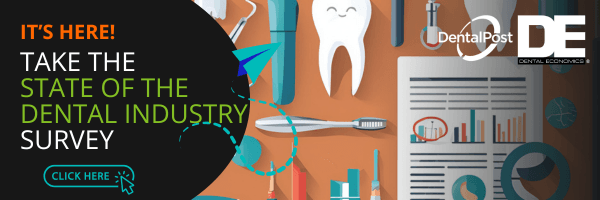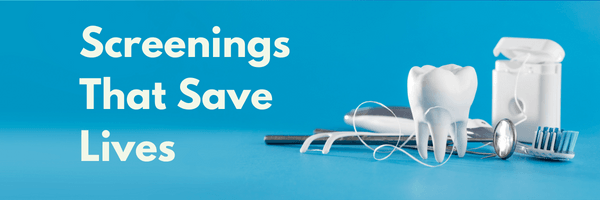.png)
Fall Back In Love With Your Dental Career
Posted October 04, 2022
A career in the dental field can be highly rewarding; however, like other careers, it can have its highs and lows that can challenge our decision to forgo a career in dentistry in the first place. That is why it is extremely important to find ways to maintain happiness while at work.
When you speak to most recent graduates, they’ll tell you how excited they are to start their new career in dentistry. There is potential for growth and success, but high demands often take a toll, and the excitement and enthusiasm start to fade quickly. A study from 2016 among new dental graduates found that already 39.27% attributed burnout to emotional exhaustion and 47.83% to frustration. It’s a downward trend that many of us have experienced at various stages.
As with any job, losing focus, falling into contempt, struggling with burnout, and having moments of doubt and conflict within yourself are common. Finding ways to avoid this happening can be crucial if you want to stay in love with your career.
Prevent Burnout
Burnout is a common complaint we hear in dentistry. Burnout combines emotional exhaustion, a cynical attitude towards patients, and feelings of low personal accomplishment. It occurs when passionate, committed people become disillusioned with a job or career from which they have previously derived meaning.
Burnout can be prevented if the signs and symptoms are recognized before negative feelings can fully take over. Communication is key! Communication with coworkers and management to work through any conflict in the workplace is necessary. By actually seeking out areas of potential conflict and proactively intervening in a just and decisive fashion, you will likely prevent certain conflicts from ever arising. If a conflict flairs, you will likely minimize its severity by dealing with it quickly. Time spent identifying and understanding natural tensions will help to avoid unnecessary conflict.
Burnout can also be prevented by making self-care an important part of your daily routine. Introducing more relaxation and “me time” into your life can make a huge difference. Try to set aside at least one hour a day and do something to help yourself recover, whether going for a run, practicing yoga, meditating, cooking or whatever else makes you feel calmer. Within your office, this can be as simple as starting a Wellness Wednesday series where you talk about all forms of wellness. You could share articles, resources, and hotlines to call for those struggling.
Write Down Your Goals for Your Dental Career
What better way to bring back motivation into your career than to write goals down on paper? Being able to describe your goals in written form gives you the best chance of goal success. Writing down your goals helps you to clarify exactly what you want to achieve, which helps guide your daily actions towards goal achievement. Having a clear perspective on what you want to achieve personally and professionally prevents you from feeling overwhelmed and unaccomplished. Whether your goals are short-term goals or long-term goals,
A short-term goal should impact your day-to-day work and be easy to track, so you can measure success and have an uplifting sense of achievement. Short-term goals are the roadmap that takes you from where you are to where you want to be. But it’s important to note there’s not a single right path to get there, and that path is rarely straightforward.
Examples of Short-Term Goals
- Become familiar with new technology
- Read more
- Waste less time during work hours
- Communicate more with coworkers
- Update DentalPost profile, resume, and LinkedIn profile
- Expand professional network
Long-term career goals are milestones you set to achieve in not a few weeks or months but years. They are the key to keeping you focused on your career path. Consider them the blueprint for helping you achieve the outcomes you want to see in your life.
Examples of Long-Term Goals
- Master a specific job skill
- Publish an article for a professional journal
- Build out your professional network
- Move into a leadership position
- Establish yourself as a reputable brand
Explore New Settings to Practice Dentistry
Mobile Dental Clinics
If you are feeling trapped in the operatory, explore new settings! Mobile dental clinics are a great way to ensure each day is a different setting with different types of patients and peers to work beside. Mobile dentistry provides dental care to children on school grounds during their regular classroom hours. An incredible opportunity for some children since 1 in 7 children (ages 6-12) are suffering from tooth pain right now. Over 51 million school hours are lost yearly due to poor dental health.
Team Placement
If having the flexibility and freedom to work while still being able to travel interests you, becoming a traveling dental professional through Team Placement would be a great option! Team Placement is for dentists, dental hygienists, and dental assistants looking for temporary job opportunities or interested in working as a traveling dental professional in the states where Team Placement is located. A couple of perks through this program are the flexibility to create your schedule and having housing provided.
Dental Program Educator
Becoming an educator at your local dental hygiene or dental assisting school is another rewarding career path outside the operatory. To become an educator, full-time faculty of a dental hygiene program must possess a baccalaureate or higher degree. Part-time faculty providing didactic instruction must have earned at least a baccalaureate degree or be enrolled in a baccalaureate degree program. All dental hygiene program faculty members must have current knowledge of the specific subjects they are teaching and documented background in current educational methodology concepts consistent with teaching assignments. Faculty who are dental hygienists must be graduates of dental hygiene programs accredited by the Commission on Dental Accreditation.
Research Dental Hygienist
Did you know you can also be a research dental hygienist? As a research dental hygienist, your duties are to conduct research, clinical studies, and surveys to study different types of treatment meant to prevent oral diseases, improve oral health, and educate the public about oral hygiene. Areas of study may include preventing gingivitis, plaque, and bleeding gums. Responsibilities include designing and conducting clinical studies with other dental hygienists and dentists, collecting data, writing reports and papers for research journals, and attending professional conferences and events to present your research or network with other research dental hygienists and oral health care practitioners.
Rekindle Your Purpose by Volunteering
Volunteering is a great way to rekindle your purpose–why you chose dentistry as your career in the first place. Helping the underserved in your community or on a travel mission is energizing because of the appreciation you receive and the immediately observable impact you make on others’ lives.
With a busy work schedule and the demands of everyday life, you may find you cannot volunteer regularly. Many programs occur annually and do not require a major time commitment. For example, ADA’s Give A Kids a Smile Day is the first Friday of February. Its mission is to end any dental health problems in America by providing care to everyone, especially those who need it the most. Providing dental care at a designated clinic or volunteering your time at a school to educate children on the importance of dental care are great ways to participate in this annual event.
You can volunteer in your community at your local nonprofit oral health care center. Colgate Bright Smiles, Bright Futures offers nine mobile vans equipped to provide oral screenings for children ages 3 to 12. The vans are based in hub cities and travel to underserved communities. With the support of volunteers, Bright Smiles vans can offer free oral screenings, referrals when necessary, and take-home learning materials. MedWorks is another great local nonprofit that sees upwards of one thousand patients over a two-day event, providing everything from cleanings to fillings to extractions to children’s sealants.
Volunteering with an international mission could be a very rewarding experience! Dentists, dental hygienists, and dental assistants have the opportunity to provide oral health care in underprivileged communities throughout the world. Generally, these international programs provide two types of oral health care: emergency treatment and oral health education.
Keep Learning and Advancing Your Skills
For individuals, learning helps to broaden horizons and encourage self-development. With new knowledge, you may be able to identify new opportunities for your office or identify more efficient ways of working. Learning is essential to our existence. Just like food nourishes our bodies, information and continued learning nourish our minds. Lifelong learning is an indispensable tool for every career and organization.
Fulfilling your continuing education requirements for dental hygiene license renewal can be a fun and uplifting experience. Sign up for hands-on courses that keep your attention and teach you a new skill. The American Dental Hygiene Association Annual Conference or RDH Under One Roof are two incredible conferences yearly at a new and exciting location. These conferences hold happy hours or dress-themed dinners after a long day of learning that encourage networking and communication amongst each other in a light-hearted environment.
Broaden Your Horizons
Laughing with new friends within the dental community can help bring the spark and excitement back into your career. There is always space to expand your expertise and explore different aspects of your career. Not only will you be able to find new opportunities and expand your work portfolio, but you might discover a completely new avenue that you hadn’t considered before. Exploring new and exciting ways to bring joy and fulfillment into your work life can broaden your horizons and positively impact your journey into your lifelong career as a dental professional.
We connect and educate more than 900,000 job seekers in the U.S. and Canada to build better places to work through teams that excel.





.png)

